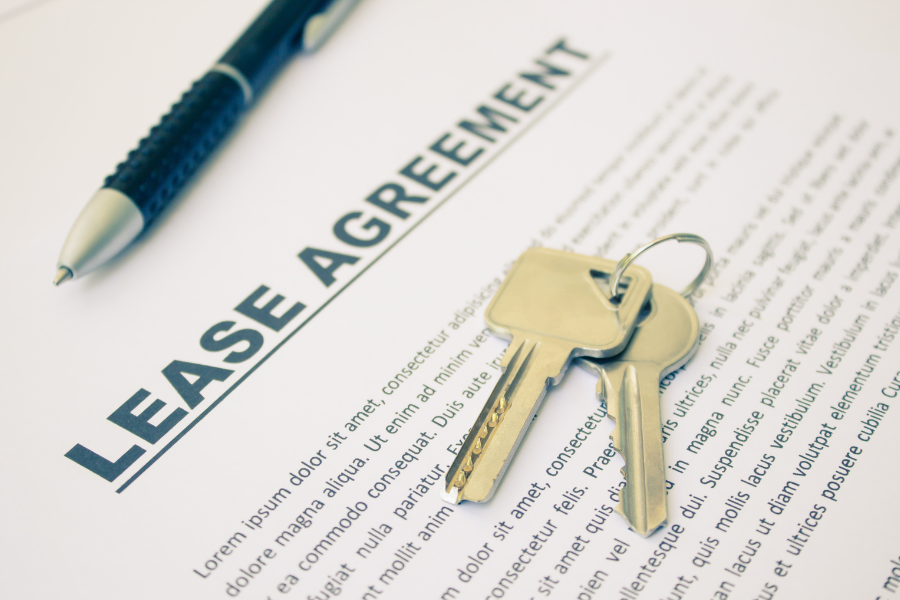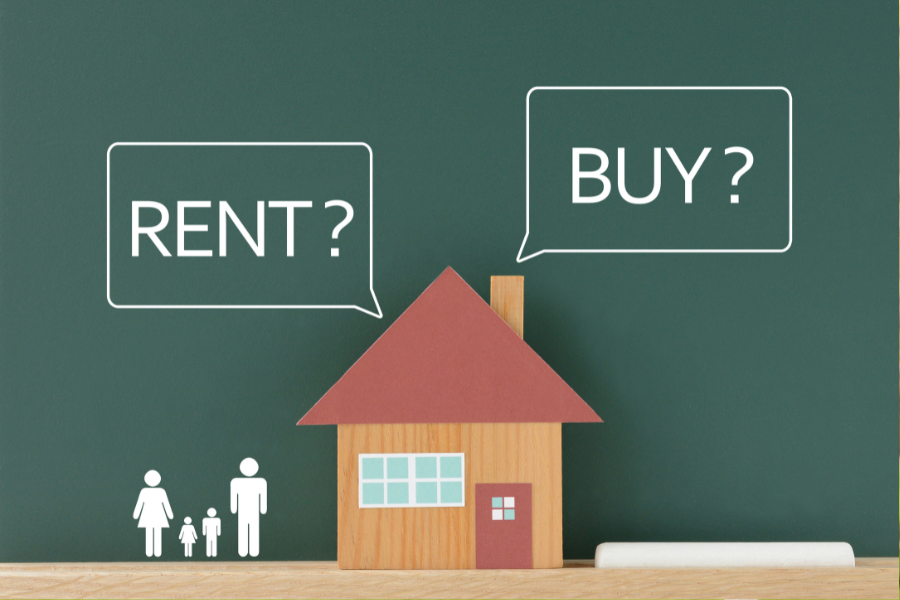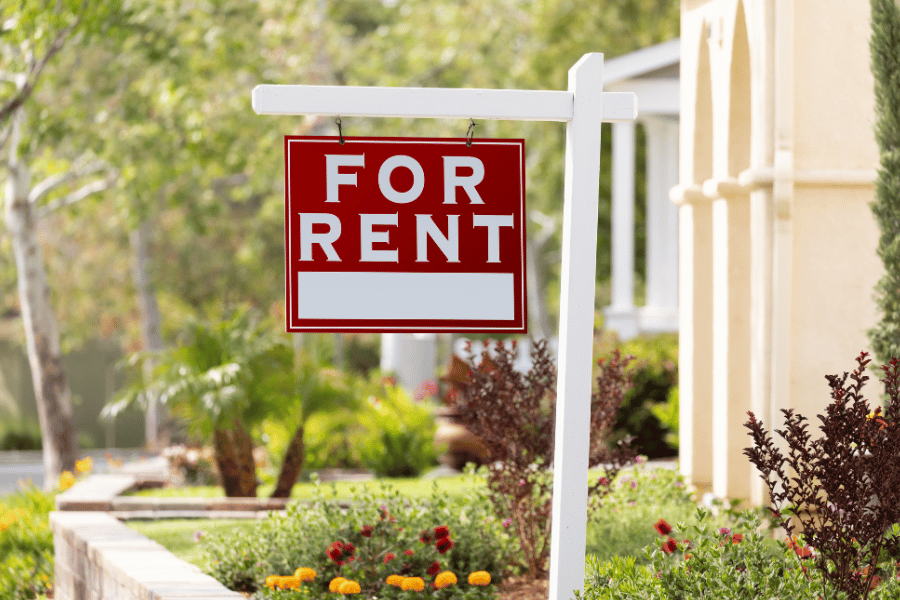Pros And Cons of Renting a Home
Are you considering renting a home instead of buying one? Here are the top ten pros and cons of renting a home.
Deciding between renting and buying a home is one of the most significant financial choices you'll face. For various reasons, owning a home may require too much maintenance and responsibility for your lifestyle.
Whether you're a young professional just starting, a growing family, or someone considering a lifestyle change, understanding the advantages and disadvantages of renting can help you make an informed decision that aligns with your goals and circumstances.
The Triangle area's dynamic housing market presents opportunities and challenges for potential renters and buyers. Let's explore the key factors you should consider when deciding whether renting suits your current situation.
This is what you need to know about renting a home
1. Pro: Ultimate Flexibility and Freedom
Renting offers unmatched flexibility, especially valuable in today's fast-changing world. Whether you're considering a job opportunity in another city, want to explore different neighborhoods in Raleigh, or prefer to relocate without significant financial consequences, renting provides that freedom.
Rental terms include the monthly rent, rules and responsibilities of the tenants, and the length of the lease. Some leases may be longer than 12 to 24 months, while others could be less than 12 months. It is common to have leases for six months, three months, or even month-to-month.
Short-term rentals have become a wildly popular alternative for tenants. Many short-term rentals come furnished, giving you even more flexibility because you don't need to worry about moving your furniture.
Having the flexibility to stay in a rental for a specific period may be attractive to those who travel a lot or are looking for a more flexible lifestyle. Jobs that require more travel, such as pilots, flight attendants, international executives, military careers, travel writers, and photographers, are just a few examples of people who could benefit from the flexibility that renting would offer.
.png)
2. Pro: Repairs Are Not Your Responsibility
All homes, whether single-family residences, townhouses, or condos, will require costly repairs, maintenance, and upkeep. Understanding what could happen and having enough liquid cash for unexpected maintenance is essential when you own a home.
When the water heater breaks at 2 AM or the air conditioning fails during a sweltering North Carolina summer, renters call their landlord or property management company.
Some costly repairs could be a roof leak, leading to repairs or even a total replacement. A roof replacement costs an average of $9,500. When your roof needs replacement, you, as the tenant, don't have to even think about getting quotes, pulling money out of savings, or exploring financing options.
This peace of mind is invaluable, especially for those lacking home improvement skills or who prefer not to deal with unexpected repair costs and contractor coordination. Your monthly rent covers these contingencies, making budgeting more predictable.

3. Pro: Minimal Maintenance Responsibilities
Maintenance is a requirement when you own a piece of property. Even if you own a townhome or condo, there will be things that need attention pretty regularly. You may need to replace your siding or have your HVAC system cleaned and tuned up, or you may need to have your water heater flushed and cleaned.
Beyond basic cleanliness and minor upkeep, renters are typically free from the ongoing maintenance that homeownership demands. There will be no need for weekend lawn care, gutter cleaning, or seasonal HVAC maintenance.
Your maintenance responsibility is much less as a tenant than a landlord's. This translates to more free time and fewer unexpected expenses, allowing you to focus on work, family, and personal interests rather than home maintenance tasks.
4. Pro: Potentially Lower Monthly Housing Costs
Your monthly rent may be much less in certain areas than your monthly mortgage payment. With interest rates increasing over the last year, newer homeowners are dealing with higher monthly mortgage payments.
Either way, you must pay rent or have a good credit score to get a mortgage to keep a roof over your head. However, when homeowners calculate their monthly mortgage payment, they must include other factors that most renters don't need to worry about.
In many Raleigh neighborhoods, monthly rent can be significantly lower than the mortgage payment for a comparable property. This difference becomes even more pronounced when you factor in property taxes, homeowners' insurance, and potential HOA fees.
The savings can be substantial, freeing up money for other financial goals like building an emergency fund, investing, or paying off student loans.
5. Pro: Freedom From Property Taxes and HOA Obligations
Property taxes in Wake County and surrounding areas can add hundreds of dollars to monthly housing costs, and many desirable neighborhoods come with HOA fees ranging from modest to significant.
These expenses are built into your rent as a renter, but you're not directly responsible for tax increases or special assessments that can surprise homeowners.
The average cost of homeowners' insurance is $2,110, almost the same as that of an entire year of renters' insurance. On the other hand, the average cost of renters' insurance is about $230 annually.
.png)
6. Con: Limited Long-Term Stability
The most significant drawback of renting is the inherent lack of stability. Landlords can choose not to renew leases, sell properties, or significantly increase rent at renewal time.
This means that should your landlord decide to increase your monthly rent at the end of each term, they can do so without any notice. To make things worse, there is no cap on how high they could raise it. Some renters could face increases of 25% or more, leaving them feeling unstable.
When a landlord decides to sell their home, they must give you written notice if they choose to sell the property. Your lease terms and duration will still be in effect. Once the lease term expires, it will be up to the discretion of the new landlord whether or not they will allow you to renew your lease.
This uncertainty can be particularly stressful for families with school-age children or those who have established strong community ties in their neighborhood.
7. Con: Pet Restrictions and Additional Fees
For many Americans, having a pet is essential when evaluating where they want to live or rent. Landlords can restrict pets, place breed restrictions, or allow only cats or dogs.
If landlords restrict renters moving with pets, their renter pool will dramatically reduce. Some landlords have measures to protect against potential damage when a pet lives in the home.
It is typical to see pet rent added to the cost of the rent, which would increase your monthly rent payment as a renter. A pet deposit is also standard when you apply for a rental property.

According to the North Carolina Real Estate Commission, the "pet fee" can be any reasonable amount the landlord wishes to charge. This way, if your pet damages the property, the landlord can keep all or part of the deposit to repair any damage your pet may have caused.
According to The Fair Housing Project of North Carolina, persons with disabilities are protected. This means that if someone who is disabled has a service animal to help aid them in their disability, a landlord must accommodate this request, regardless of a "no pet" policy. For this to be allowed, a disabled person must provide documentation of the disability, and the animal must be registered as a service animal.
8. Con: Restricted Personalization and Modifications
Renters must typically live with existing paint colors, fixtures, and layouts. Want to install a ceiling fan, change the kitchen backsplash, or create a home office?
Most modifications require landlord approval, and many are not permitted. This can make creating a space that feels like home or meets your specific needs challenging.
9. Con: Lease Agreement Limitations
Rental agreements often include restrictions that can impact your lifestyle. Limits on guests, quiet hours, parking restrictions, and rules about home-based businesses can feel constraining.
Some leases also include clauses about early termination penalties that can be costly if circumstances change unexpectedly.
The landlord could also request that the tenants keep up with the lawn maintenance. This is an added responsibility and expense for the tenant and is negotiated when the lease is signed.

Regardless of the terms and rules of your lease agreement, you, as the tenant, must follow them. You may risk losing your rental property and seeking other housing options if you do not.
10. Con: No Equity Building or Investment Potential
Building equity brings many Americans a sense of security. Your mortgage payment goes toward the investment of owning a home. Homeowners can build equity by paying down their mortgage each year, which could be one of the most significant investments of their lifetime.
Every monthly rent payment goes directly to your landlord, with no return on investment. Unlike mortgage payments, which gradually build ownership in a property, rent provides housing but no long-term financial benefit.
In Raleigh's appreciating real estate market, renters miss out on potential property value increases that could contribute to long-term wealth building. Some of the best ways to save money for a house while renting are to downsize, find a compatible roommate, and pay off high-interest debt.
Methodology
Data was sourced from AAA, Nerdwallet, and the North Carolina Real Estate Commission to determine the pros and cons of renting a home.
FAQs
What are the pros and cons of being a landlord?
There are primary pros to being a landlord. Pros include providing a steady income, diversifying your portfolio, tax benefits, appreciation, and building equity.
Some cons could include expenses for repairs, unexpected issues, and property management complaints. Issues with tenants include nonpayment or late payments. However, there are way more pros than cons to being a landlord.
Is it better to rent?
Renting is usually only cheaper in the short term. Renting may be a better option if you live in a high-cost area or want some flexibility. In the long term, you will find that you are setting yourself up to be more financially stable if you build equity in your investment rather than helping your landlord build equity in their property.
What is the disadvantage of renting?
Some disadvantages of renting include not being able to reap the tax benefits of homeownership, the inability to build equity, and the likelihood that your rent will increase yearly. Finding a rental that will allow pets can also be challenging if you are a pet owner.
What is the advantage of renting?
The most significant advantage of renting is not having to deal with home maintenance and repairs. Renting also provides flexibility since you are only locked in for the terms of your lease. Once you fulfill the lease terms, you are free to move to another place or area without the hassle of having to sell your home to move.
Pros and Cons of Renting - Final Thoughts
The choice between renting and buying concerns finances, lifestyle, goals, and personal circumstances. Renting makes excellent sense for those prioritizing flexibility and minimal responsibility, or still exploring what they want in a long-term housing situation. It's often ideal for young professionals, those new to the area, or anyone who values the freedom to move without significant financial consequences.
However, for those ready to establish roots, build equity, and have control over their living environment, homeownership may be worth the additional responsibilities and upfront costs.
If you are weighing your options and are considering a home purchase, please be sure to contact the experts at Raleigh Realty. We are here to help you find the perfect housing solution for your needs and budget.




